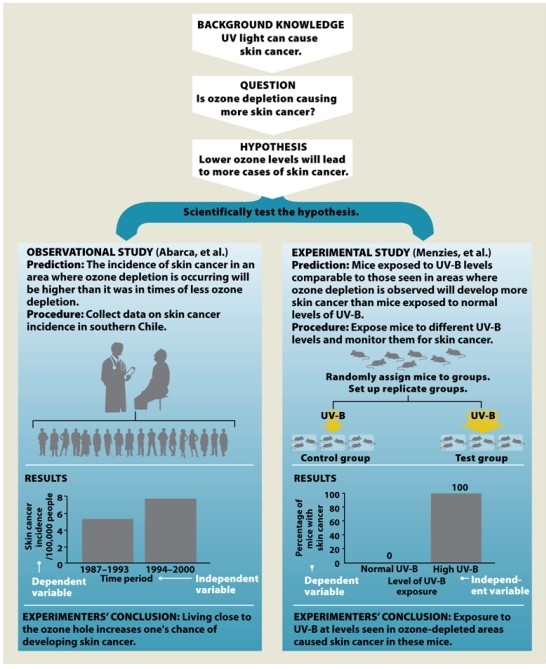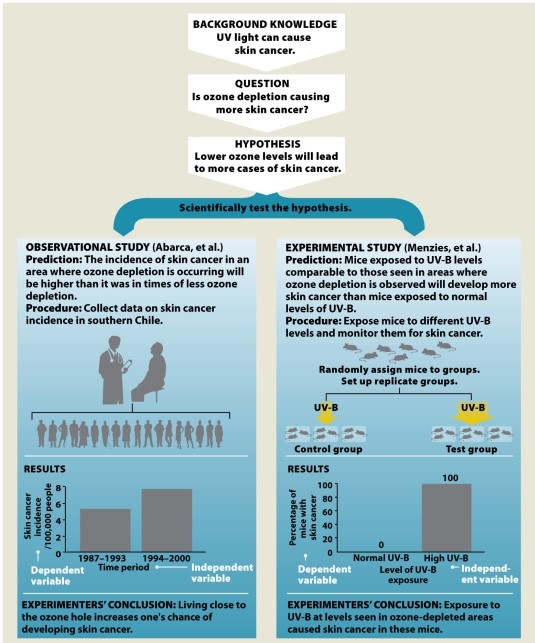Exam 2: Science Literacy and the Process of Science- Science and the Sky: Solving the Mystery of the Disappearing Ozone
Exam 1: Environmental Literacy and the Goal of Sustainability - on the Road to Collapse: What Lessons Can We Learn From a Vanished Viking Society45 Questions
Exam 2: Science Literacy and the Process of Science- Science and the Sky: Solving the Mystery of the Disappearing Ozone84 Questions
Exam 3: Information Literacy:toxic Bottles on the Trail of Chemicals in Our Everyday Lives- Human Populations and Environmental Health64 Questions
Exam 4: Human Populations- One Child China Grows Up: a Country Faces the Outcomes of Radical Population Control57 Questions
Exam 5: Environmental Health- Eradicating a Parasitic Nightmare: Human Health Is Intricately Linked to the Environment- Consumption and the Environmental Footprint51 Questions
Exam 6: Ecological Economics and Consumption- Wall to Wall, Cradle to Cradle: a Leading Carpet Company Takes a Chance on Going Green58 Questions
Exam 7: Managing Solid Waste- a Plastic Surf: Are the Oceans Teeming With Trash- Ecology61 Questions
Exam 8: Ecosystems and Nutrient Cycling- Engineering Earth: an Ambitious Attempt to Replicate Earths Life Support Systems Goes Awry66 Questions
Exam 9: Population Ecology- the Wolf Watchers: Endangered Gray Wolves Return to the American West56 Questions
Exam 10: Community Ecology- What the Stork Says: a Bird Species in the Everglades Reveals the Intricacies of a Threatened Ecosystem- Biodiversity and Evolution65 Questions
Exam 11: Evolution- a Tropical Murder Mystery: Finding the Missing Birds of Guam64 Questions
Exam 12: Biodiversity- Palm Planet: Production of a Common Household Ingredient Is Wreaking Havoc on Wildlife Across the Globe44 Questions
Exam 13: Reserving Biodiversity- a Forest Without Elephants: Can We Save One of Earths Iconic Species- Water Resources50 Questions
Exam 14: Freshwater Resources- Toilet to Tap: a California County Is Employing a Controversial Method to - Supply Drinking Water71 Questions
Exam 15: Water Pollution- Into the Gulf: the Makings of a Dead Zone, Far Upstream- Food Resources38 Questions
Exam 16: Feeding the World - a Gene Revolution: Can Genetically Engineered Food Help End Hunger56 Questions
Exam 17: Agriculture- Farming Like an Ecosystem: Creative Solutions to Feeding the World- Conventional Energy: Fossil Fuels50 Questions
Exam 18: Coal- Bringing Down the Mountain: in the Rubble, the True Costs of Coal58 Questions
Exam 19: Oil and Natural Gas- the Bakken Oil Boom: Is Our Next Big Fuel Source Our Dirtiest- Air Pollution: Consequences of Using Fossil Fuels66 Questions
Exam 20: Air Pollution- the Youngest Scientists: Kids on the Frontlines of Asthma Research64 Questions
Exam 21: Climate Change- When the Trees Leave: Scientists Grapple With a Shifting Climate- Alternatives to Fossil Fuels62 Questions
Exam 22: Nuclear Power - the Future of Fukushima: Can Nuclear Energy Overcome Its Bad Rep61 Questions
Exam 23: Sustainable Energy for Stationary Sources- Fueled by the Sun: a Small Island Makes Big Strides in Renewable Energy- Sustainable Living in Community64 Questions
Exam 24: Urbanization- the Ghetto Goes Green: in the Bronx, Building a Better Backyard62 Questions
Exam 25: Environmental Policy56 Questions
Exam 26: Counterfeit Cooling: in the Global Effort to Thwart Climate Change, Some Lessons Are57 Questions
Exam 27: Learned After the Fact60 Questions
Exam 28: Optional Chapters Available in Launchpad61 Questions
Exam 29: Mineral Resources and Mining67 Questions
Exam 30: Rare Earth Elements: a Bevy of Unfamiliar Minerals Are Crucial for Our Everyday63 Questions
Exam 31: Technologies-But They Come With a Slew of Problems- Soil and Grassland Resources64 Questions
Exam 32: Restoring the Range: the Key to Recovering the Worlds Grasslands May Be a Surprising One63 Questions
Select questions type
Which of the following statements best describes the relationship between ozone in the stratosphere and the presence of CFCs?
(Multiple Choice)
4.8/5  (43)
(43)
The health and lifestyle of 10,000 nurses are tracked for a period of 30 years. It is discovered that of the nurses who smoked cigarettes for at least 10 years, 35% had lung cancer. Is this an observational or an experimental study? Does this study demonstrate that cigarettes cause lung cancer?
(Essay)
4.9/5  (40)
(40)
Which form of ultraviolet (UV) radiation is important in the formation of ozone?
(Multiple Choice)
5.0/5  (39)
(39)
In this chapter it has been made clear that the process used to obtain a body of knowledge (facts and explanations) is more important than the body of knowledge itself. Why is this?
(Essay)
4.9/5  (33)
(33)
2.4.
 -Refer to Infographic 2.4. Explain why in science absolute proof is not required.
-Refer to Infographic 2.4. Explain why in science absolute proof is not required.
(Essay)
4.9/5  (33)
(33)
Explain how the depletion of the ozone layer in the stratosphere is allowing more UV-B radiation to reach the Earth's surface.
(Essay)
4.8/5  (32)
(32)
Which of the following lists the steps of the scientific process in the correct order?
(Multiple Choice)
5.0/5  (23)
(23)
Infographic 2.6.
 -Refer to Infographic 2.6. Which study depicted in the infographic provides stronger support for the stated hypothesis? Briefly explain why.
-Refer to Infographic 2.6. Which study depicted in the infographic provides stronger support for the stated hypothesis? Briefly explain why.
(Essay)
5.0/5  (35)
(35)
What kind of study, observational or experimental, was Susan Solomon's experiment that provided support for her hypothesis that CFCs were leading to depletion of ozone in the stratosphere?
(Essay)
4.8/5  (29)
(29)
How does a peer-reviewed article compare to an Internet blog?
(Multiple Choice)
4.9/5  (38)
(38)
Is the following a valid hypothesis? Cancer patients who are prayed for will have better outcomes compared with patients with similar prognoses (likely outcomes) who are not prayed for.
(Essay)
4.8/5  (34)
(34)
Scientists use the scientific method to investigate the natural world. The scientific method is based on gathering empirical evidence. What is empirical evidence, and why are empirical data a hallmark of good science?
(Essay)
4.9/5  (33)
(33)
Infographic 2.6.
 -Refer to Infographic 2.6. In Menzies et al., what is the independent variable? What is the dependent variable? List as many qualities as possible that should be the same between mice in the two groups (control and test groups). Ideally, what should be the only difference between the two groups of mice?
-Refer to Infographic 2.6. In Menzies et al., what is the independent variable? What is the dependent variable? List as many qualities as possible that should be the same between mice in the two groups (control and test groups). Ideally, what should be the only difference between the two groups of mice?
(Essay)
4.8/5  (26)
(26)
Which type of experiment collects data in the real world, without manipulating the subject of study?
(Multiple Choice)
4.8/5  (32)
(32)
Showing 21 - 40 of 84
Filters
- Essay(0)
- Multiple Choice(0)
- Short Answer(0)
- True False(0)
- Matching(0)